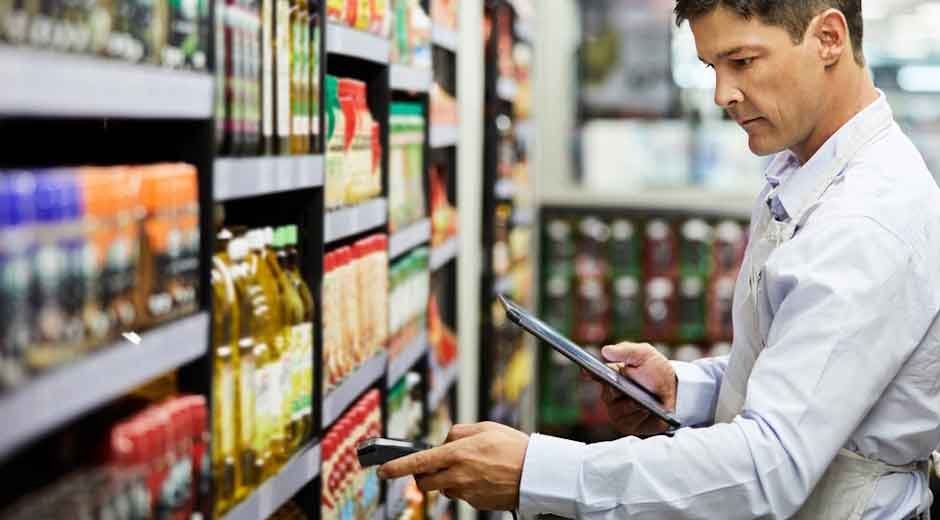The world of retail and logistics is evolving at breakneck speed, with businesses facing increasing demands for efficiency, sustainability, and transparency. Amidst this dynamic environment, smart labels powered by RFID technology (Radio Frequency Identification) have emerged as game-changers. These intelligent labels are not only transforming inventory management but also creating new opportunities for efficiency and greater customer satisfaction.
Whether you’re a retail manager, a supply chain expert, or a sustainability advocate, understanding the potential of smart labels is paramount for staying competitive. But what exactly makes these labels indispensable? Here, we’ll explore their role, benefits, and applications in retail and logistics management.
What Are Smart Labels?
Smart labels, often referred to as RFID stickers, combine traditional labelling with built-in RFID inlays that enable wireless communication with an RFID reader. Unlike your standard barcode, RFID tags allow for scanning multiple items simultaneously without requiring a direct line of sight. This means you can capture and process data more accurately and efficiently than ever before.
Smart labels provide critical information such as product ID, location, and even storage conditions in real-time. From tracking stock movements to reducing losses due to mismanagement, they simplify complex processes across industries.
Why Retail and Logistics Need Smart Labels
1. Enhanced Inventory Management
For retailers and logistics professionals, keeping track of stock is an ongoing challenge. Smart labels allow you to achieve unparalleled inventory visibility by providing instant updates on product quantities, locations, and movements. This reduces the risk of errors, ensures timely restocking, and helps prevent stockouts or overstocking.
By pairing RFID with intelligent software, businesses gain a centralised dashboard to monitor inventory across multiple locations. Retail giants like Zara have already implemented RFID technology to enhance their inventory management systems, enabling them to restock shelves faster and offer customers a seamless shopping experience.
2. Real-Time Tracking
Unlike traditional barcodes, RFID technology allows for tracking items in real-time. For logistics management, this means everything from pallets to individual units can be monitored throughout the supply chain.
For instance, a logistics manager can use RFID to follow a shipment’s journey from the warehouse to the retail shelf, ensuring full accountability at every stage. Additionally, visibility into transit times and delays aids in optimising routes and delivery schedules, cutting down on costs and inefficiencies.
3. Improved Customer Experience
Modern customers demand efficiency and transparency. Smart labels enable businesses to meet these needs by not only ensuring products are readily available but also by providing additional product details when scanned with a smartphone.
For example, a customer purchasing a bottle of wine might simply tap their phone on the label to access information about the vineyard, grape variety, and ideal food pairings. This level of engagement transforms the shopping experience, fostering greater customer loyalty.
4. Efficient Loss Prevention
Retail businesses lose billions annually to theft, misplaced items, and stock discrepancies. The implementation of intelligent labels helps reduce these losses significantly. RFID readers can quickly identify missing or misplaced items, making it easier to locate and recover them.
For example, in high-risk areas like storerooms or warehouses, RFID-enabled systems can automatically alert staff about unusual activities or unauthorized item removals, reducing the chances of theft.
5. Sustainability Gains
With increasing pressure to adopt sustainable practices, smart labels are perfect for businesses looking to minimise waste. By optimising inventory levels and reducing the chances of overproduction or spoilage, companies can meet sustainability targets while cutting costs.
For supply chains in the food industry, RFID tags can monitor perishable goods’ storage temperatures, ensuring that products remain safe for consumption. This proactive approach leads to less food wastage and boosts consumer trust in the brand.
Applications of Smart Labels in Retail and Logistics
- Retail Apparel
Smart labels are transforming the way fashion brands manage stock. With RFID tags embedded in clothing labels, employees can perform inventory checks in minutes instead of hours, while stores stay stocked with top-selling sizes and styles.
- Supply Chain Visibility
For logistics providers, the combination of RFID technology and GPS enables end-to-end visibility, providing real-time data on shipment conditions and locations. This transparency helps improve order accuracy and enhances partnerships across the supply chain.
- Pharmaceuticals and Healthcare
The pharmaceutical industry is tapping into RFID to ensure compliance with stringent regulations. With smart labels, hospitals and pharmacies can better track medications, guaranteeing that only safe, verified products reach patients.
- Food and Beverage
RFID can be used to track the lifecycle of perishable goods, ensuring appropriate storage conditions and minimising waste. Consumers can even scan intelligent labels to verify product origins, reinforcing trust and promoting ethical practices.
- E-commerce
E-commerce giants are leveraging smart labels to increase order accuracy in fulfilment centres. With fewer errors and faster dispatch, customers receive their purchases more efficiently, improving overall satisfaction.
How to Implement Smart Labels
If you’re considering incorporating RFID stickers and smart labels into your enterprise, start by asking these key questions:
- What are the specific pain points in my inventory or supply chain processes?
- Can RFID technology integrate with existing systems?
- What ROI can I expect, and how soon?
It’s also essential to collaborate with a trusted partner like Avery Dennison, who provide comprehensive RFID solutions across industries. Their portfolio covers UHF, HF, and NFC RFID tags designed for various applications, ensuring seamless integration into your unique operations.
The Future of Retail and Logistics Management
The adoption of smart labels and RFID technology shows no signs of slowing down. With industries prioritising efficiency, sustainability, and customer engagement, intelligent labelling has become indispensable for staying ahead of the curve.
Whether you’re a retailer ensuring premium customer experiences or a logistics expert striving for seamless operations, RFID-powered smart labels unlock vast potential for growth, innovation, and success.
Start unlocking that potential today by exploring advanced RFID solutions and discover how they can transform your business!










